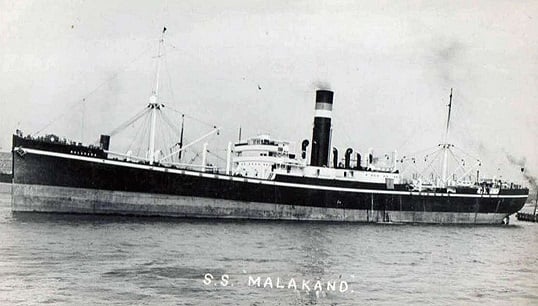
I read through the Malakand article and it said she went up in the early hours. What I experienced couldn't have been anything to do with that. It happened over 80 years ago, and the recollection I have is that the ship went up later in the day.
When I was a 10-year-old boy living in Liverpool, the Germans had made a direct hit on the city's water supply, so there were water tankers coming out after the Blitz, after the all-clear. One of my jobs for my family was to go and collect the water when we could and come back home.
When the Malakand went up, I was collecting water alone at Huskisson Dock. I remember all the stuff coming over the top, all sorts of debris: bits and pieces of steel and flyboard over a mile away.
There are all sorts of stories about canvas flying and there are different versions of what happened and how the fire started.
The overhead railway was protected by the buildings at the end of the dock. I can't recollect that going out at the time, but it did have to be repaired every now and then.
There were a lot of people dying and all sorts, a lot was happening all over the place. You just had to get up and try to go on living. The water was the main thing and trying to get some food because it was all rations of course. You had to fight occasionally for it!
Alex Harrison
Alex Harrison's experience with the Malakand did not put him off a taking up a career at sea when he was 16, and he has been a member of Nautilus and its predecessor unions since 1947.
More letters
Same old story on seafarer safety
I was watching a recent programme on BBC1, Why Bridges Collapse, about the MV Dali container vessel hitting the bridge at Baltimore. The part where they were taking the bridge's trusses off the bow of the vessel I found quite illuminating.
DP training was fine until the goal posts were moved
I very much agree with the letter written by member number 179359 regarding the high costs of attaining and revalidating dynamic positioning (DP) certification.
In memory of Anthony (Tony) Fell
In memory of Anthony (Tony) Fell, a former Council member and a Union member since 1963 who was dedicated to furthering the development of radio officers.
